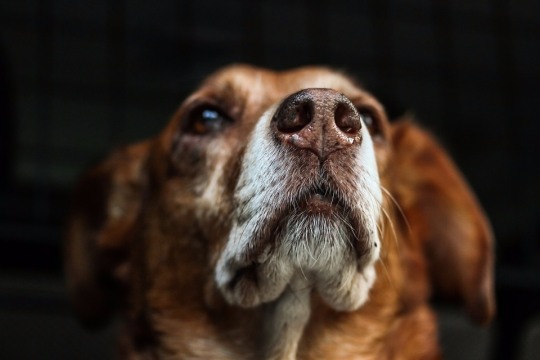
Hollywood actress Shannon Doherty was diagnosed with breast cancer in 2015. I recalled the situation before I was diagnosed.
She was obsessed with the smell of her right breast by a dog, and oddly, Doherty insisted that her dog first discovered cancer.
In addition to Doherty, many people have had similar experiences with being tested for abnormal behavior in dogs or cats and later being diagnosed with cancer.
Can I test tumors and cancer through my dog? According to the first study of the UK National Health Service, trained drug detection dogs were able to detect prostate cancer in 93% urine samples.
Another project at the Curie Research Institute in Paris, 'KDog', allowed dogs to smell the clothes they had on breast cancer patients. After six months of training, two German Shepherds said they were able to distinguish between clothes worn by people with cancer and clothes worn by people who were not.
In fact, in early 1989, researchers believed that dog's nose could actually detect cancer cells. But Peter Boeker, a gas detection expert at the University, says, "I do not know exactly what a dog is reacting to." Almost thirty years later, researchers know that certain odors change the behavior of dogs.
Carl Schmanski, MD, and his team at the University Hospital in Darmstadt, Germany, will reveal this through a study of 600 volunteers and 140 of them diagnosed with lung or bowel cancer.
They will analyze breath, urine, and stool samples and isolate the different substances and molecules that characterize cancer patients and study where the trained drug-detecting dogs respond. I hope to finally find out the molecules associated with cancer.
The aim of this study, however, is not to train dogs to better detect cancer, but to discover the presence of cancer through smells by making dog's ability more reliable.
It would be good if the drug detectors could detect cancer instead of an X-ray tester that could visit a hospital and cause cancer through radiation.
But Skimannsky said dog training is time consuming and it is almost impossible to train as many dogs as needed for cancer screening programs around the world. A researcher at the Kremers University Hospital in Austria also said the dog is not a machine and we do not want to depend on someone's life for dogs.
![[Issue] Can dogs actually detect human cancer? issue can dogs actually detect human cancer](https://moontore.com/wp-content/uploads/2019/02/issue-can-dogs-actually-detect-human-cancer-1200x700.jpg)


